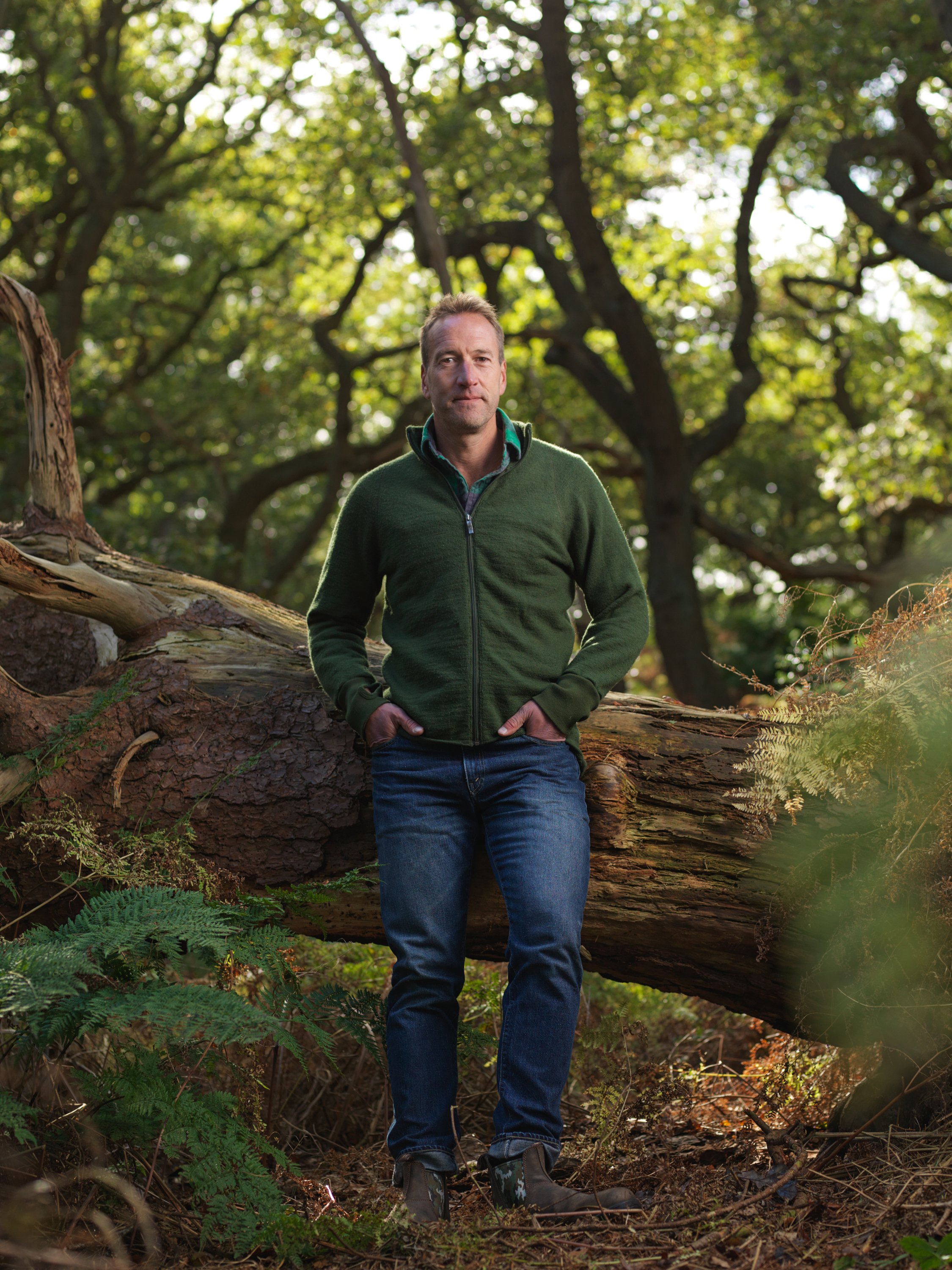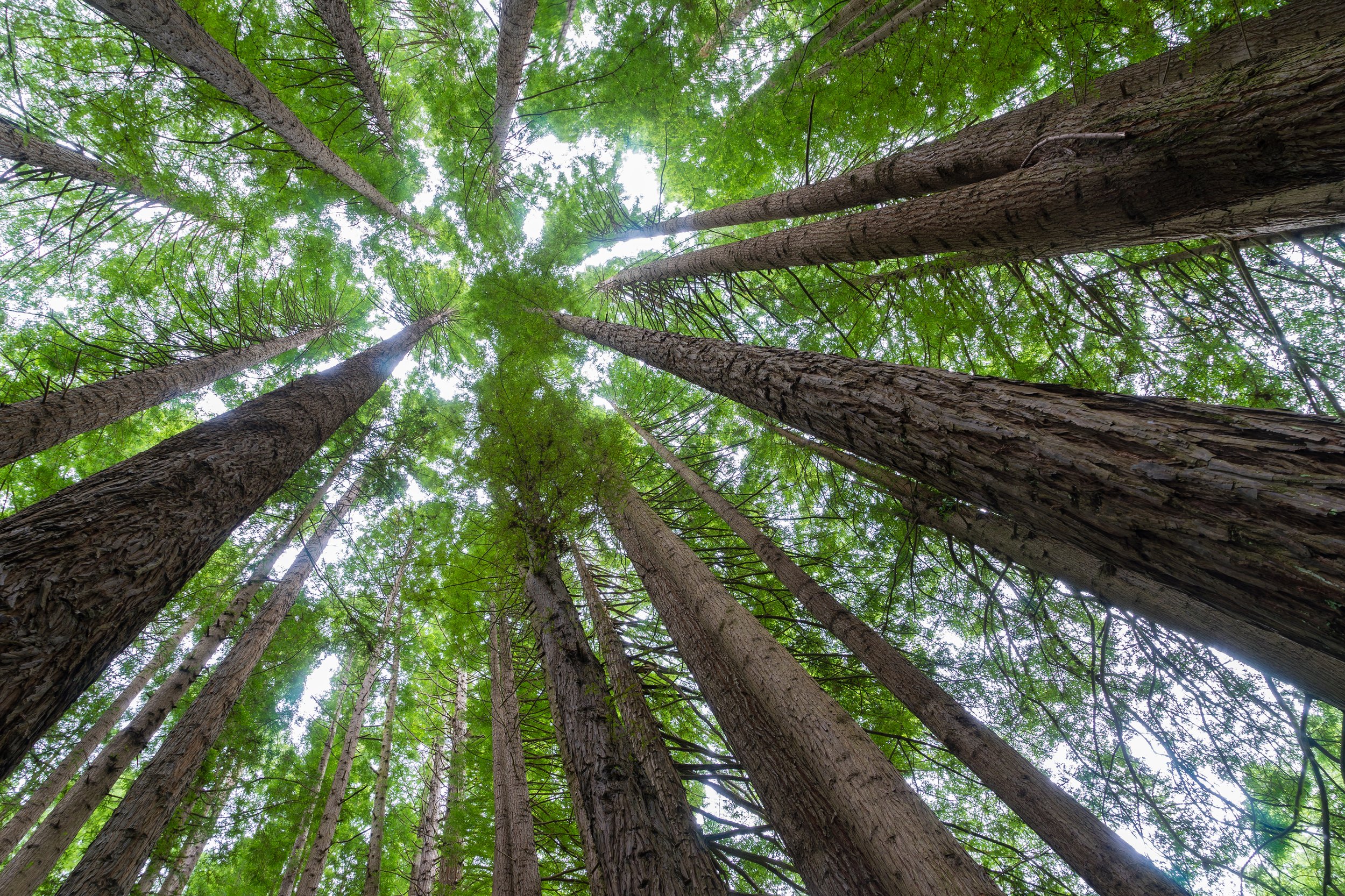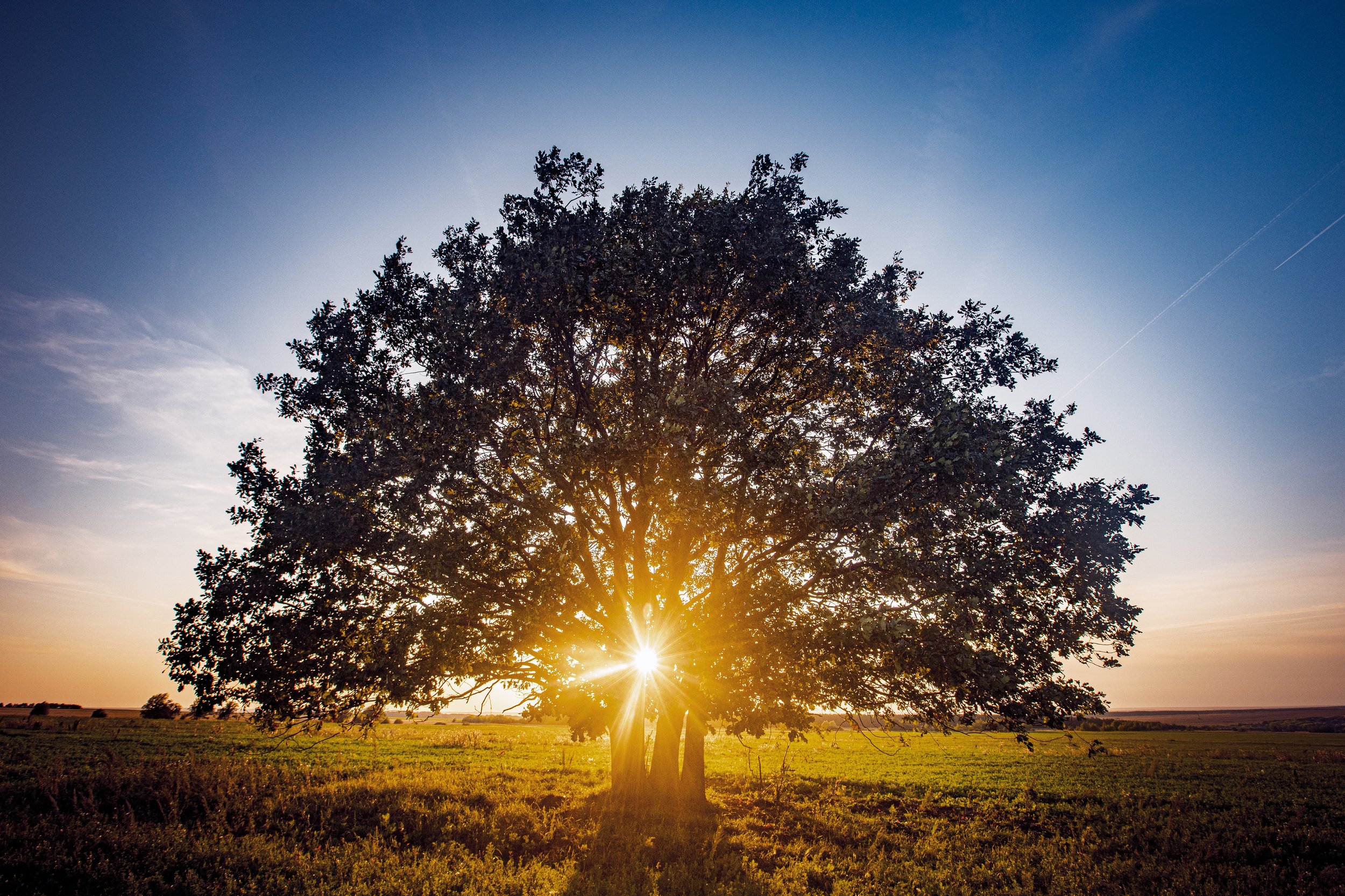The Power Of Trees
TV presenter and wildlife advocate Ben Fogle is hoping to encourage all of us to plant more trees – and appreciate their majesty.
“You have to be pretty cold hearted to not be moved by trees,” says Ben Fogle, 48.
The broadcaster and adventurer – who shot to fame after appearing in Castaway 2000 – is on a mission to increase tree coverage. If we want to fight climate change and support biodiversity, “we have to up our game when it comes to reforestation,” argues the father-of-two. “We need to do better, and we can do better. We’ve got the space. We’ve got the willpower. We’ve got the human power and we just need to act.”
What do trees mean to you?
“Trees for me are symbolic on many different levels,” says Fogle. “They’re integral to life on this planet, but also just on a personal level, a mental welfare level, trees are so powerful. I’ve long been a proponent of forest bathing, forest schools, and the idea that you can learn better outside.”
Has your relationship with trees changed after spending more time at home because of the pandemic?
“During lockdown my family and I spent a lot of time in the woods near our house in Oxfordshire. We were able to watch over the course of that year as the trees changed. I had the same place where I lay on the forest floor and I could watch the changing leaves,” he recalls. “If there was one positive from lockdown for me, it was being able to see those tiny, very slow changes happening before my eyes. I had never had a chance to watch the same tree go through all its seasons. And there’s something incredibly therapeutic about that; I felt better about myself. And I think if more people could engage with forest environments, we’d be in a better place.”
How important is education in reconnecting us with nature?
“My son Ludo, who’s 12, became a passionate gardener and taught himself. During the first lockdown just getting hold of seeds was impossible, so he literally went through our dinners picking seeds out of any vegetables and fruits we were eating, which was quite amusing. He started propagating them, experimenting, seeing what would grow, making his own little greenhouses out of old panes of glass. What I loved was his enthusiasm and his creativity,” says Fogle proudly. “I would prefer my son to learn gardening and cooking than I would if he learned spelling and math (at school).
It’s not popular, this sentiment,” he adds archly, noting the brilliance of autocorrect and calculators on smartphones. “The skill of planting a tree, how to choose the correct native tree, shade, light, all of those things, I’d prefer he learned how to plant and then how to cook their produce. box, they could take themselves out of the classroom, back into wild areas, gardens, parks and just try to reconnect children with something they are largely disconnected from.”
Why is tree planting so important?
“There is something very powerful about humans that live for 90 years or so, putting in trees that could be around for hundreds and hundreds of years. There aren’t many things you can do where you can largely rest assured it will outlive you and be around for many future generations,” says Fogle. “It’s a very selfless act. I find it amazing. We’ve got some beautiful old trees where we live and I love just sitting in them, on them, under them, around them with my children, and just imagining what those trees have been through, what they saw.”
Arguably reforestation isn’t the answer to all our climate woes…
“My form of environmentalism is to champion people rather than making people feel guilty, rather than highlighting shortcomings or contradictions or hypocrisy, because we all have those,” says Fogle, acknowledging that he’s working with HP – a paper company – on this reforestation campaign.
“As someone who flies prolifically for my work, I’m aware of the shortcomings there. But I try to make up for it in other ways; we drive an electric car; we have an air source heat pump and solar panels. It’s not perfect. My CO2 footprint is higher than most other people in this country, let alone the world, because of air travel,” he says frankly. “Sometimes it’s about choosing the least worst options. The reality is, anything and everything we do will have a negative impact. But there are other things we can do to try and lessen and mitigate it. And that’s certainly what I try to do, and I think planting trees is a beautiful thing.”
Climate change can feel overwhelming. How can we talk about it effectively – especially with children?
“The equivalent for me as a child was atomic and nuclear weapons. I remember the book When The Wind Blows (by Raymond Briggs), all about nuclear meltdown and countries firing atomic missiles at one another. I remember having sleepless nights waiting for the nuke to hit London and wipe everything out, and for people to grow third noses and turn green. I can say that with a smile on my face now, but it was terrifying. I had so many nightmares because of the way it was presented,” he says. “The last few years, the modus operandi has been to hit hard and to terrify people. I like a more measured, rational debate and I think terrifying children to the point of tears is not the way to go about it.”
Do you have hope we can turn things around?
“I have hope because I’m a realist. I can see that we have an uphill struggle, but we put ourselves into this mess. We’ve come up with extraordinary technology; Artificial Intelligence is reaching incredible levels – which scares some people – but I would like to think we will come up with alternatives. It’s not going to be perfect. We have to resign ourselves to the fact six or seven billion people living on this planet will have an impact. It will be impossible for us to not have an impact. But we can’t just go from one extreme to the other either,” Fogle says, arguing that if we all suddenly switched to electric cars overnight, that would cause its own problems also.
“That’s not an excuse to just allow it to continue. But if temperatures are going up and the 1.5 degree (Celsius) change (is unstoppable) can we harness that extra heat? That’s my approach. That’s not to say we shouldn’t be trying to stop it or halt it or reduce it. I think this is my expedition planning coming into play. I like a belt and braces approach. We need to work with the changes that are happening and try to come up with other creative solutions.”
On top of planting trees, what more can we do?
“We need to take personal responsibility. If you’re going to uproot your garden and put down paving stones, or you’re going to make negative changes which will impact flora and fauna, we have a responsibility to try and replant, or put back what we took out,” he says.
Aside from ancient oaks in the Northern Hemisphere, where have you seen the most magnificent trees around the world?
“The great redwoods of Northern California are just mind-bogglingly beautiful; the sequoias – some of the actually moved me to tears. The size of them. How long they have stood on the earth (they can exceed 3,000 years). There is something very, very spiritual and powerful about that. I have been moved by trees all over the world; I’m a true tree geek to be honest.”
Fogle is working with HP and Arbor Day Foundation to spread the message about the immediate need for protection and restoration of forests and woodlands. As part of its Forest Positive programme, HP has helped plant 1 million trees globally in 2020, with a further goal of 1 million more trees planted by the end of 2021.







